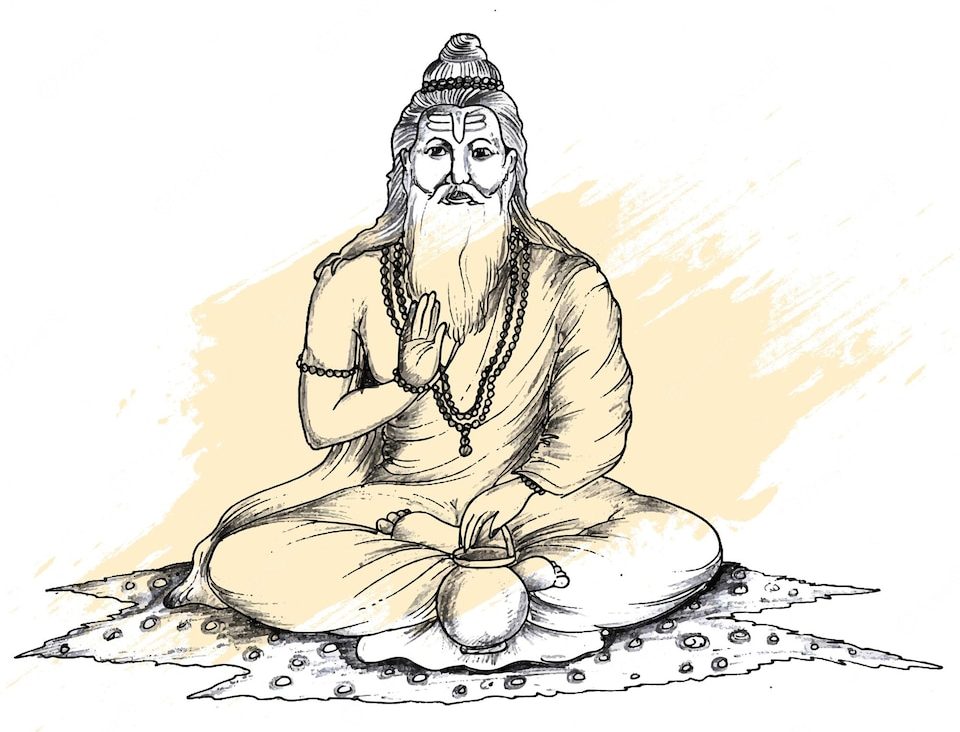
Maharishi Gautama
The Sage of Wisdom and Dharma
Introduction:
In the vast tapestry of ancient Hindu mythology, Maharishi Gautama stands as a prominent figure known for his profound wisdom and contributions to Vedic hymns and teachings on Dharma. The son of Maharishi Angiras, he is revered for his spiritual insights and his role in shaping Hindu culture. His wife, Ahalya, also plays a significant role in Hindu mythology, making their story an integral part of the ancient lore.
Early Life and Education:
Maharishi Gautama’s early life and education are shrouded in the mists of time. Born as the son of Maharishi Angiras, a revered sage, he was raised in an environment steeped in spirituality and sacred knowledge. Under the guidance of his father and other eminent sages, Maharishi Gautama received a comprehensive education in Vedic hymns, spiritual practices, and the principles of Dharma.
Career as a Sage and Teacher:
As Maharishi Gautama matured, he embarked on his own spiritual journey, delving deeper into the realms of knowledge and wisdom. His profound insights and deep understanding of the Vedas earned him a reputation as a sage of great wisdom and understanding. He dedicated himself to the study and interpretation of Vedic hymns, contributing to their development and preservation. As a teacher, he imparted his knowledge and teachings on Dharma to his disciples and seekers who flocked to him in search of spiritual guidance.
Relationship with Gods:
Maharishi Gautama’s relationship with the gods is not as extensively mentioned in the scriptures as some other sages. However, his deep spiritual practices and profound wisdom likely earned him the respect and blessings of the divine beings. The gods recognized his spiritual prowess and sought his counsel on matters related to Dharma and cosmic order.
Other Disciples:
While specific disciples of Maharishi Gautama are not prominently mentioned in the scriptures, it is reasonable to assume that his reputation as a sage of great wisdom attracted seekers who sought his guidance. His teachings and spiritual insights undoubtedly influenced those who had the privilege of learning from him, shaping their spiritual journeys and moral outlook.
Contributions to Hindu Culture:
Maharishi Gautama’s contributions to Hindu culture lie primarily in his profound insights into Dharma, the moral and ethical principles that govern human conduct. His teachings on Dharma emphasized righteousness, duty, and the pursuit of truth. His hymns and interpretations of the Vedas added to the corpus of sacred texts, enriching Hindu spiritual and cultural traditions.
Legacy:
Maharishi Gautama’s legacy is woven into the fabric of Hinduism, leaving an enduring impact on the spiritual and cultural landscape. His teachings on Dharma continue to guide individuals in leading righteous lives and upholding moral values. His hymns and contributions to Vedic literature are treasured as sacred texts, fostering a deeper understanding of the cosmic order and the principles that govern human existence.
Books Written by Him:
While specific books solely authored by Maharishi Gautama are not mentioned in the scriptures, his teachings and contributions are found in various Vedic hymns and texts. His interpretations and insights into the Vedas have been instrumental in shaping Hindu philosophy and spirituality.
Conclusion:
Maharishi Gautama, the sage of wisdom and Dharma, occupies a significant place in Hindu mythology and culture. His early life and education under the guidance of Maharishi Angiras laid the foundation for his spiritual journey. As a sage and teacher, he imparted profound insights into Vedic hymns and teachings on Dharma. While his relationship with the gods may not be extensively mentioned, his contributions to Hindu culture and spirituality are undeniable. Maharishi Gautama’s legacy lives on through his teachings and hymns, inspiring individuals to embrace righteousness, seek wisdom, and navigate the path of Dharma in their lives.
Editor – Kaalchakra Team
[ Note – Before Concluding anything as a Finale, Please Go through Original Scriptures of Vaidik Literature Written in Sanskrit and Also with Meaning of That time of Language. Because English is a Limited language to Explaining the Deeper Knowledge of Vaidik Kaal. ]
